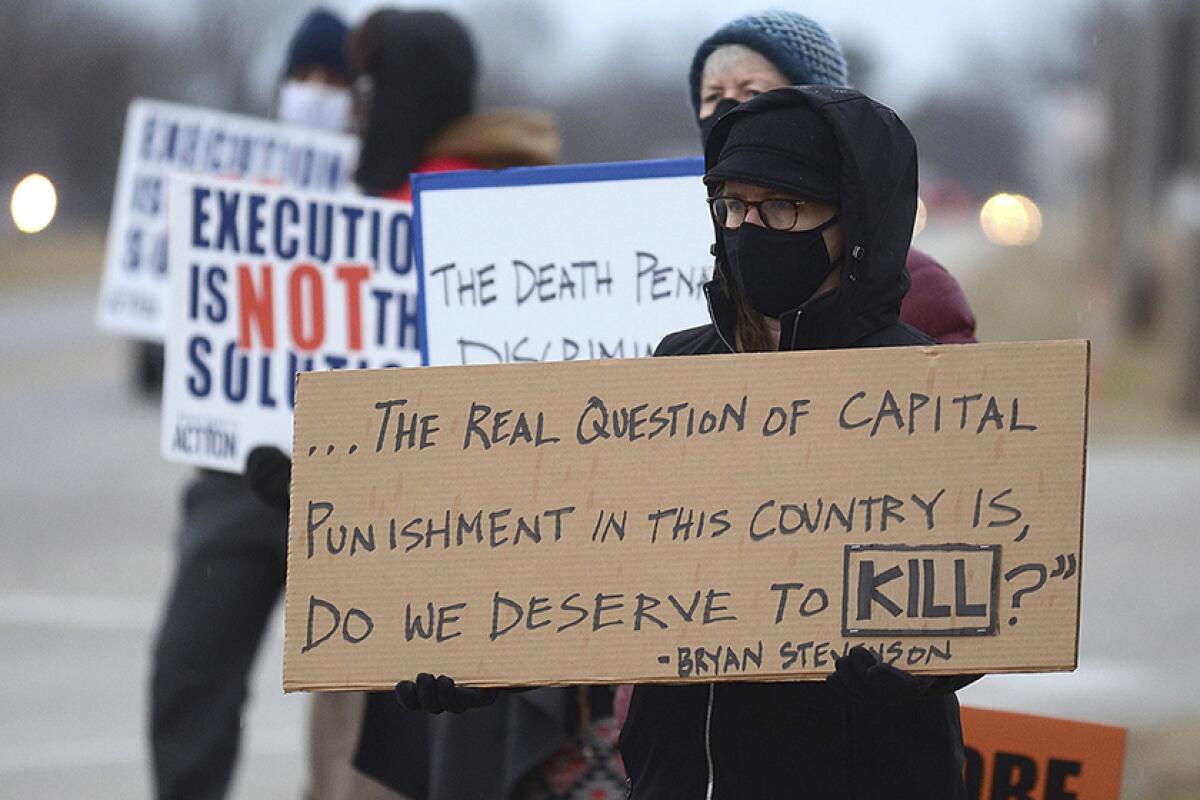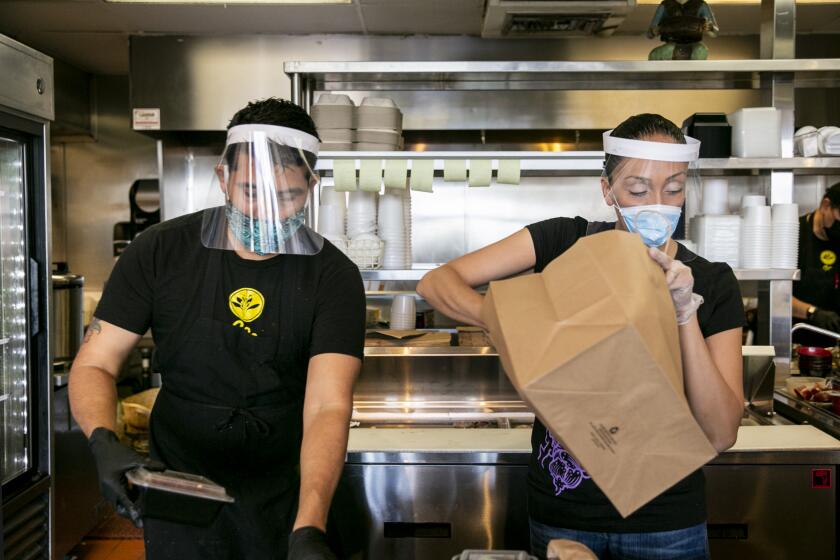Opinion: Firing squad or electric chair: South Carolina steps back into the barbaric

South Carolina Gov. Henry McMaster quietly signed into law Friday a measure that requires condemned inmates there to choose between a firing squad or the electric chair if the executioner can’t rustle up the drugs for a lethal injection.
What next, the guillotine? The garrote? Bring back the trap-door gallows?
South Carolina, of course, isn’t the only state with capital punishment. California also has the death penalty, and it would conduct executions by lethal injection — the only sanctioned option — if it were doing any. But death sentences are on hold under a moratorium by Gov. Gavin Newsom and a separate court challenge, and no one has been put to death here since 2006.
In fact, all the states with capital punishment laws on the books use lethal injection as the first option, but several also allow backup methods: electrocution (now eight states with the addition of South Carolina), lethal gas (seven states), hanging (three states), and firing squad (three states).
But states are having trouble buying the drugs with which to kill people because pharmaceutical companies, which have spent billions of dollars to create drugs to alleviate human suffering and to save the lives of the ill and the diseased, have largely stopped selling their products to corrections departments if they will be used in executions.
Rather than take that as a cue for rethinking capital punishment, the South Carolina legislature instead joined other states in retreating into more barbaric and previously abandoned techniques for executing people.
As California restaurants deal with customers who believe new CDC guidance allows them to go maskless, fears ramp up among essential workers.
There is no humane way to take a life; executions are inherently inhumane — acts of vengeance, not justice.
Lethal injections were supposed to sanitize the process for the squeamish, to make it look as though killing someone was just a matter of putting him or her to sleep. For many that has been the case — an uneventful process if which a small group of state employees gathers around and intentionally kills someone under the gaze of a handful of official witnesses and relatives of the victim and, occasionally, the condemned.
But for others it has been torture, with some writhing in pain complaining that they felt like they were burning from the inside out, and in one horrific case, taking two hours to finally die.
The reasons the government kills people, we are told, are to exact justice and to serve as a deterrent. Make an example of the killer, goes the argument. But if that was really the case, we would follow Albert Camus’ advice in his 1957 essay, “Reflections on the Guillotine,” the mode of execution in use at the time in France and his native Algeria.
The House minority leader’s assertion is contradicted by Trump
“Justice of this kind is obviously no less shocking than the crime itself, and the new ‘official’ murder, far from offering redress for the offense committed against society, adds instead a second defilement to the first,” Camus wrote, then added later:
“If society justifies the death penalty as a necessary example, then it must justify itself by providing the publicity necessary to make an example. Society must display the executioner’s hands on each occasion, and require the most squeamish citizens to look at them, as well as those who, directly or remotely, have supported the work of those hands from the first.”
Think of the reality TV show potential here. Contestants competing to be the ones to throw the switch, or join the firing squad, with a live-streamed finale — the execution itself.
Yeah, that would be barbaric. Just like the death penalty itself, no matter how many contortions the government goes through to try to make it seem less so.
More to Read
A cure for the common opinion
Get thought-provoking perspectives with our weekly newsletter.
You may occasionally receive promotional content from the Los Angeles Times.













